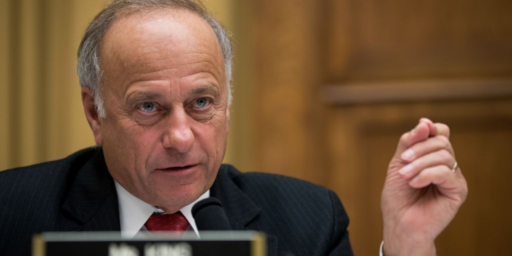Cronkite, the ‘Newspaperman,’ Lays Down His Pen
Reuters – Cronkite, the ‘Newspaperman,’ Lays Down His Pen
Lamenting the lack of depth in television news, the man considered the most trusted person on TV, Walter Cronkite, ends his current job this coming Tuesday right back where he started, as a newspaperman. In his final column in a year-long stint writing for the King Features Syndicate, Cronkite, 87, calls his decades as the nightly news anchor for broadcast network CBS “rewarding,” but “not entirely satisfactory” due to time limitations that prevented deep reporting of any one story. “We’re talking about covering one of the most complicated and important nations of the world … and it’s patently impossible to do an adequate job of covering the major stories of the day, around the world, in 17 minutes,” Cronkite recently told Reuters, alluding to the on-air time in any half-hour news telecast.
The veteran reporter, who has covered presidential elections and armed conflicts from World War II to the Vietnam War, said he would like to see the numerous news “magazines” on TV devote more time to “instant documentaries” of current topics instead of “so much coverage of sex and Hollywood and crime.” In his farewell passage for King Features, Cronkite writes that because newspapers can provide depth and breadth, they can become a “custodian of our history.” “The decent newspapers try to be fair and present both sides of a disputed story in the community and our nation, and that is the essential of our history,” he said. “It is where historians go to do their research. This is an absolutely vital link in the chain of culture that we call our democracy.”
There are some things that each medium — television and newspapers — does distinctively. Television, of course, gives viewers a better sense of how people look and act, but newspapers provide a record that can be stored for people to read and study events for years to come. In the case of presidential elections, Cronkite said the TV industry should be forced to give away air time to candidates to avoid multi-million dollar TV ad campaigns and keep offices from being up-for-sale to the candidate who raised the most money.
I’ve got great respect for Cronkite as a journalist and he was a staple in our family living room when I was growing up. I’m less enamored of his public policy positions. This idea simply makes no sense outside a parliamentary system. When you have dozens of candidates running for president every four years, 435 House races and 33 or 34 Senate races every two years, plus an endless stream of state and local elections, this is just not practicable. Further, it would virtually assure incumbents of re-election, since it would be very difficult to break their momentum.
The newsman said he values the Internet as a research tool, but he finds some stories published on the Web — scandals especially — play too fast and loose with the facts. “I am dumbfounded that there hasn’t been a crackdown with the libel and slander laws on some of these would-be writers and reporters on the Internet. I expect that to develop in the fairly near future,” he said.
I presume he’s talking more about the Matt Drudges of the world rather than the blogosphere. Still, he’s simply wrong. Since the NYT vs. Sullivan decision in 1964, public figures have had considerably less protection from libel and slander laws than was once the case. Absent proof of malicious intent, there is simply no case. That’s true whether it’s the NYT, NBC, or somebody’s blog.
In the past year, Cronkite’s columns have been printed in 180 newspapers around the world through King Features Syndicates, which supplies some 5,000 newspapers worldwide with material. King Features is part of Hearst Corp. Columns have varied from humanist topics to political comment. But, he said, it was time for him to put up his pen and shut down his computer. Cronkite got his start as a newspaper reporter in Austin, Texas, some 68 years ago, and moved into television broadcasting in 1950. He said he has always considered writing for newspapers as being his “real home.” He said he is ending his yearlong stint writing for King Features to devote more time to working on television documentaries and speaking to conventions, sales meetings and college students.
I wish him well even though, to be honest, I didn’t realize he was even still active. Much too soon, he was forced off the air in the early 1980s, along with all the other greybeard anchors on the three networks, to bring in a crop of pretty boys. It’s rather ironic that the replacements–Dan Rather, Tom Brokaw, and Peter Jennings–have all kept their jobs longer than Cronkite anchored the CBS Evening News and are all older now than he was then.





He wasn’t really active anymore.
Drudge ran his first column nearly a year ago, and it was updated perhaps twuce since then.
And yes, the current crop is older. Yet, none listed further left than ol’ Walter.